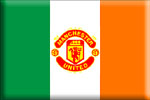Roy Keane’s CharacterBy any measurement Roy Keane is an extraordinary sports personality and an unusual human being. For a soccer player that was not blessed with lavish footballing skills he became the most effective player of his generation and became a colossus in the soccer environments in which he operated. His manager at Manchester United, Sir Alex Ferguson, famously once said of Keane, “If I were putting Roy Keane out there to represent Manchester United on a one against one, we’d win the Derby, the National, the Boat Race and anything else. It’s an incredible thing he’s got.” The fact that Keane was able to make so much more out of his soccer skills than other more extravagantly talented footballers is down to his willpower, his consuming desire to be the best that he could be, his single-mindedness, his sense of purpose – his character. Autobiography as a SourceTo say that Roy Keane is an interesting and intriguing character is something of an understatement. To make any sense of the dynamics involved in the Saipan incident it is important to focus in on Roy Keane’s character. Using his Roy Keane’s autobiography as a mechanism for accessing his innermost thoughts and by studying some very public actions and utterances it is possible to draw some firm conclusions about Keane and his personality. As with any autobiography it is obviously important to be aware that the views expressed are most likely to be biased in favour of the subject. When reading Keane’s autobiography there is a need to be doubly careful as his ghost-writer was a self-professed ardent fan. Eamon Dunphy is prone to extreme, and often very subjective, views on matters. His often fawning monologues, and indeed rants, about Roy Keane as a footballer and as a person make it clear that there is the distinct possibility that Keane’s autobiography is not the most objective account of a person’s life ever written. Keane Doesn’t Avoid the UnsavouryHaving said that, it is to Keane’s credit that he makes no obvious effort to dodge some of the numerous major unsavoury incidents in his life. What is not to his credit is that he seems to parade some of them as badges of honour or trophies of battle. In almost every single case that is recounted he never expresses any real regrets. There is no sense that if Keane found himself in the same circumstances that he would do things any differently. Yes, he uses terms like, ‘I should have known better’ or ‘I felt sorry about letting my family down’, but in almost every sorry tale that he recounts, he presents his own justification for his actions and never expresses any genuine remorse. Keane’s On-Pitch Violence Roy Keane’s outrageous and violent assault on Alf-Inge Haaland would have led to criminal charge had it happened anywhere other than on a soccer pitch. Yet, to date, Keane has never publicly expressed any regret for his actions or the consequences (for Haaland and for Keane himself) that flowed from it. The only regret that he has ever expressed about the circumstances surrounding the Alan Shearer red card incident is that he should have punched Shearer instead of pushing him because the punishment is the same for both offences. For his disgraceful double stamp on Gareth Southgate when Southgate was lying defenceless on the ground at Keane’s feet, Keane admitted that the tackle that led to the stamping was a fair tackle. Keane’s justification for stamping on Southgate, as expressed in Frank Worrell’s book, Roy Keane: Red Man Walking, was that Southgate should not have been lying on the ground, “I felt he got in the way.” Roy Keane – Not a Dirty PlayerDespite these examples, which are just the tip of a ice berg of soccer nasties perpetrated by Keane that earned him a dozen red cards and a large deck of yellow cards, Keane did not consider himself to be a dirty player. In a interview with Tom Humphries of the Irish Times in August 2002 here is what he had to say when Humphries asked him about the issue, “‘I’m not saying that I’m an angel but I’ve played professionally for 13 years now. I’ve been involved in two tackles where players have been injured and taken off. Once when I played at Forest against Nigel Winterburn. I got given the free kick. Once playing for United against Dennis Wise of Chelsea. He jumped in late and injured himself. I got the free again. I get hurt every week. I play in the middle of the park as a ball-winner. People want to hurt me. I want to hurt them. It’s not the same as wanting to injure them or end their career. People need to chill out a little bit.” Surely it is only Roy Keane that see his style of play through this particular prism. Those on the receiving end of his raking studs, such as Haaland and Southgate mentioned above, and others such as Neil Pointon and Vitor Baia, that spring to mind, might take a distinctly different view. Keane’s admission that, “I’m no angel” is a long way from admitting that some of his tackles were beneath a player of his immense ability. Far from being ashamed of the patently shameful, Keane really enjoyed his well earned hard-man reputation throughout his career. Contrast his attitude to the more unsavoury on-pitch conduct with his view of his performance in the 1999 Champions League semi-final against Juventus in Turin. Roy Keane V Juventus NOTE: Unless stated otherwise all quotations are from: Back to Saipan Affair Table of Contents – Irish Football © 2009-2018 Soccer-Ireland.com. All rights reserved
Triggs – The Autobiography of Roy Keane’s Dog
Ireland at 2002 World Cup Finals – Irish 2002 World Cup Squad – Irish Group Matches Ireland V Cameroon – Ireland V Germany – Ireland V Saudi Arabia – Ireland V Spain |
July 27, 2024





